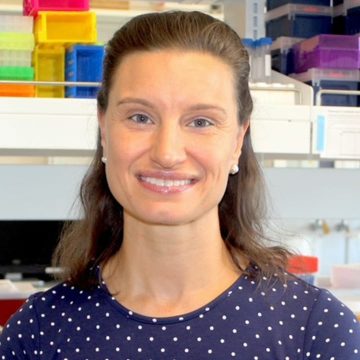Nisanne Ghonem, PharmD, PhD

PSC Research Fund Pilot Research Award
$50,000 over one year
University of Rhode Island
Novel mechanisms for PPAR as a target to treat cholestasis in PSC
Primary sclerosing cholangitis (PSC) is a chronic autoimmune disease characterized by the accumulation of harmful bile acids and liver inflammation leading to fibrosis and liver failure. There is no effective therapy for PSC. This study will measure the presence of mutations in certain UGT genes responsible for eliminating harmful bile acid molecules in PSC. We will test the effects of drugs called peroxisome proliferator-activated receptor (PPAR) activators, which are being actively studied as possible new medications to treat PSC, on these UGTs. Our earlier research found that patients with PSC and who were treated with fenofibrate, which activates PPAR, have improved UGT processing of bile acids. We also found that the PPAR activator fenofibrate can reduce the inflammatory response of immune cells to bile acids. However, to date, no studies have directly compared the newer candidate PPAR drugs to understand which medication performs best, and the role of the UGT gene mutations in influencing the treatment response to these drugs in PSC is unknown. Therefore, we will compare the PPAR agonists and their impact on 1) UGT mutations, 2) UGT enzymes, 3) immune cells called T-cells, and 4) liver cell inflammation. Our study will help address the unmet need in PSC by defining novel mechanisms of how PPAR drugs improve and provide a rational basis for selecting current candidate PPAR drugs to treat PSC.